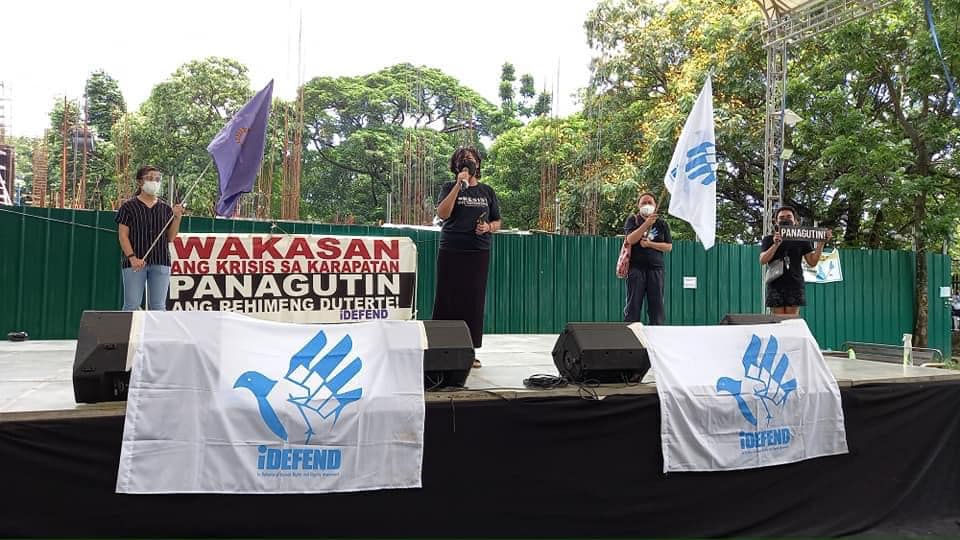
iDefend statement for SONA 2022
The Duterte regime left the Philippines reeling in severe economic depression, with skyrocketing prices of basic commodities, eroded jobs and livelihood security and dire impacts of failed pandemic response. Poverty, illnesses and hunger have remained unaddressed despite a 12. 76 Trillion Peso national debt at the end of April 2022. Graft and corruption in frontline agencies such as Philhealth and the DOH further undermined government efforts at addressing urgent needs and added to the strain on the people who were doubly traumatized by militaristic lockdown measures.
Duterte also left more than 36,000 EJK victims and thousands of families without justice as a result of the most violent anti-drug campaign in the history of the Philippines. In response to the failure of the legal and justice system to substantially investigate, prosecute and stop the perpetrators from repeating the crimes of the drug war, the ICC Prosecutor has requested the resumption of its investigation into the human rights situation in the country.
An Anti-Terrorism Act is posed against opposition figures, activists, environmentalists, and human rights defenders to criminalise dissent, silence free press and unleash state terrorism upon a critical citizenry. Political detainees such as Atty. Leila de Lima and Apung Tony Tolentino languish in jail while convicted officials continue to enjoy freedom. Independent media organizations like Rappler struggle to report amidst judicial persecution and attacks from the government itself.
Economic policies which lifted the ban on open pit mining and pushes for the Manila Bay reclamation, mega dams and coal fired energy projects, land conversion, and which kept workers under insecure employment, result in continued physical and economic displacement of populations of marginalized sectors who bear the brunt of capital aggression. This is not development but wholesale human rights violations.
The government of President Marcos Jr. faces insurmountable human rights challenges if he follows the political and economic paradigm of Duterte and previous regimes. Hope for genuine change is impossible, if ambiguity dominates his plans for the country, while democratic institutions and processes continue to be attacked and vilified. Marcos Jr. must address the human rights crises as a crucial part of transition, if he is truly for unity and reconciliation.
The war on drugs must be abandoned completely in favor of evidence based, humane and health affirming approaches; the role of law enforcement to be focused on big time criminal operations and international cooperation, without the re-imposition of the death penalty. The war on terror must be repudiated in favour of concretely addressing the people’s demands for peace, development, and rights-based governance that exacts accountabilities for human rights violations, protects life and human dignity, and secures social justice for all.
Human rights remains a unifying vision for the Filipino people willing to break free from poverty, oppression and hopelessness. For this reason the Philippines deserves a National Human Rights Institution which champions a rights-based approach to nation building, embodies impeccable integrity and holds the trust of all stakeholders. New CHR appointments must follow internationally approved processes and requisites. As to the next six years of the state of human rights in the Philippines, human rights defenders hold steadfast in their commitment to resist tyranny, and build towards a progressive, equitable, just and compassionate Philippine society.





